Not working. I have’t been able to work for years. And it makes me feel useless, and ashamed, and a failure. But do I tell anyone that? No. Even more shameful than talking about not working, for me, is talking about how embarassed I am about it. But not working doesn’t make you less of a person, and forcing yourself to work and making your life incredibly stressful and miserable isn’t something anyone should have to go through. So I want to share a bit about my experience, and my thoughts, on not working.
One of the big problems in our world is that we’re obsessed with growth, and we tend to value money and productivity above all else. For autistic individuals, and people with mental health struggles, the pressure to ‘contribute’ in socially accepted ways can be suffocating. And when we can’t—or simply shouldn’t—work due to our unique needs, we’re often met with judgment, guilt, and isolation.
The cultural narrative is clear: work is seen as the default path to independence, respect, and purpose. If you’re not working, people can assume you’re lazy, unmotivated, or taking advantage of the system. I have found that particularly for invisible disabilites, you’re thought of as ‘milking it’ and just ‘not trying’.
But for some people, and this is PERFECTLY VALID, working can be incredibly stressful – workplaces and the demands of work can be loud, chaotic, and socially demanding. They can be truly harmful to one’s overall health. I know forcing myself to continue to work as both an accountant and as a HCA later on led to a complete deterioration in my mental, and as a result, physical health. Not working is me taking responsibility and putting my health first, and finding a life that ‘works’ for me!
I think it’s important to remember a few key things here:
- Not working might not be forever. Our needs, our strengths, our weaknesses, our skills, our persoalities..they are always changing and developing, and fluctuating, over time. In the future you may be able to work – or not. Either is okay. There s no pressure.
- Working a formal job isn’t the only way to contribute to society and to lead a fulfilling life. There’s part time work, there’s volunteering, there’s freelancing and doing ‘bits and bobs’; also helping people out, doing bits around the house, doing your own hobbies, experiences like travel too. These are all valuable things.
- It’s not about surviving, it’s about living a life where you are happy and are well. If you’re neurodivergent, the energy it takes to mask, to regulate, to communicate, and to simply survive in environments not built for neurodivergent minds is already enormous. If you struggle with your mental health, managing things like managing rituals, rules, PTSD, stress, mood need time and are critical to recovery and/or staying well.
- You do a lot of hidden work. The invisible labour of surviving as an autistic person and/or with mental health struggles is very real. We’re managing sensory overload, executive dysfunction, emotional regulation, trauma responses, therapy sessions, medication side effects, among many other things. Every day is work. Sometimes there isn’t room for another job too.
I want to finish by talking a little bit about internalised ableism, as I think it’s very relevant to this.
Even if the world doesn’t directly shame us, we often internalise the stigma. We compare ourselves to others. We wonder why we can’t just push through like they do. We feel like burdens, even when our needs are legitimate.
Not working doesn’t make you weak or useless. Not everyone’s path or life will look the same. Having a top career isn’t ‘the ultimate’ in life. For example, I know people who could’ve worked in high pressure jobs and risen up the ranks, who chose not to because they loved arts and crafts and gaming maybe, and wanted to sell stuff and do their own thing. They’re not autistic, they don’t have mental health issues, but they also just didn’t want the stress of formal work anymore, valued their creative hobbies, and this made them much happier!
We need a cultural shift that embraces diverse ways of living, and to stop blaming ourselves if we can’t work.
You are amazing as you are.
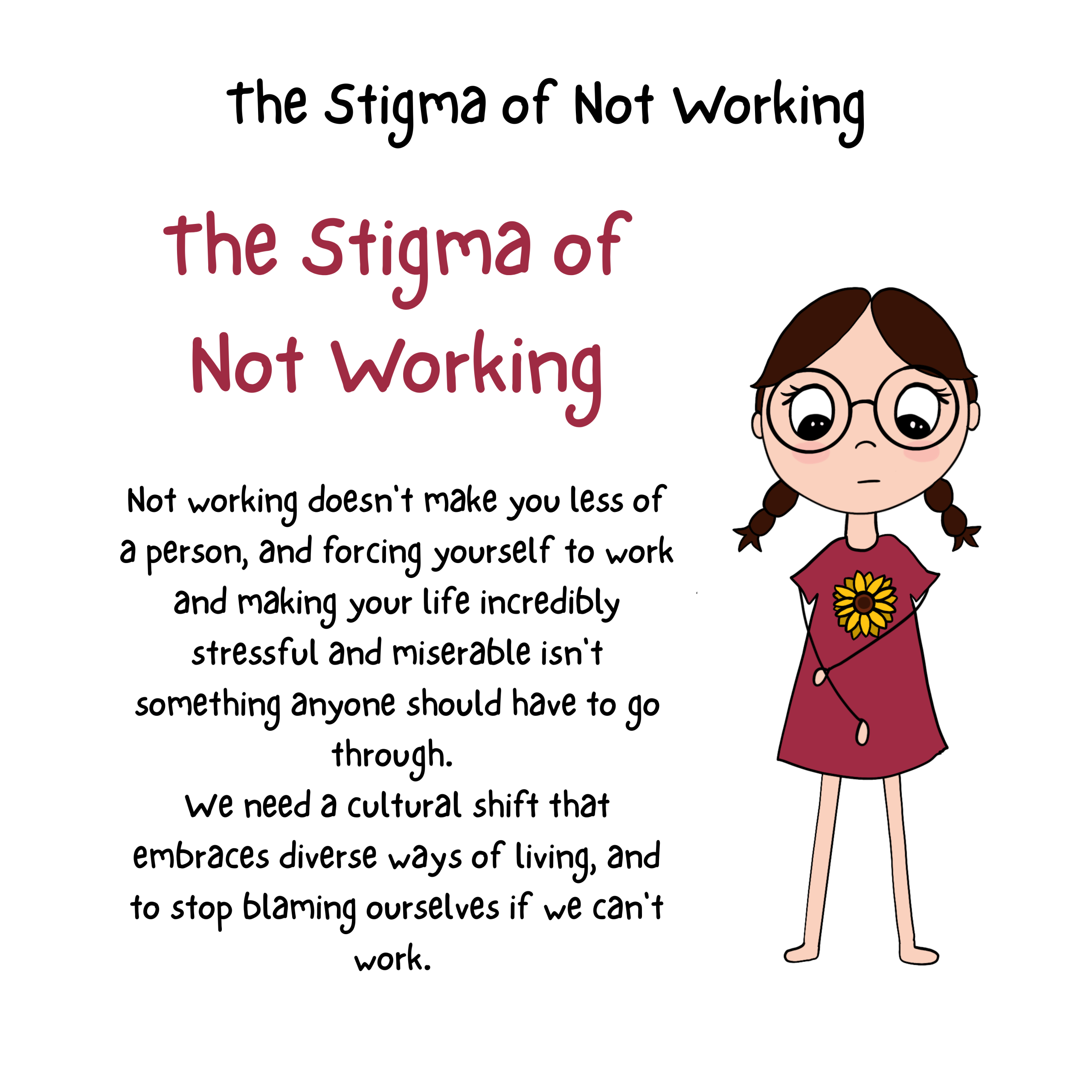
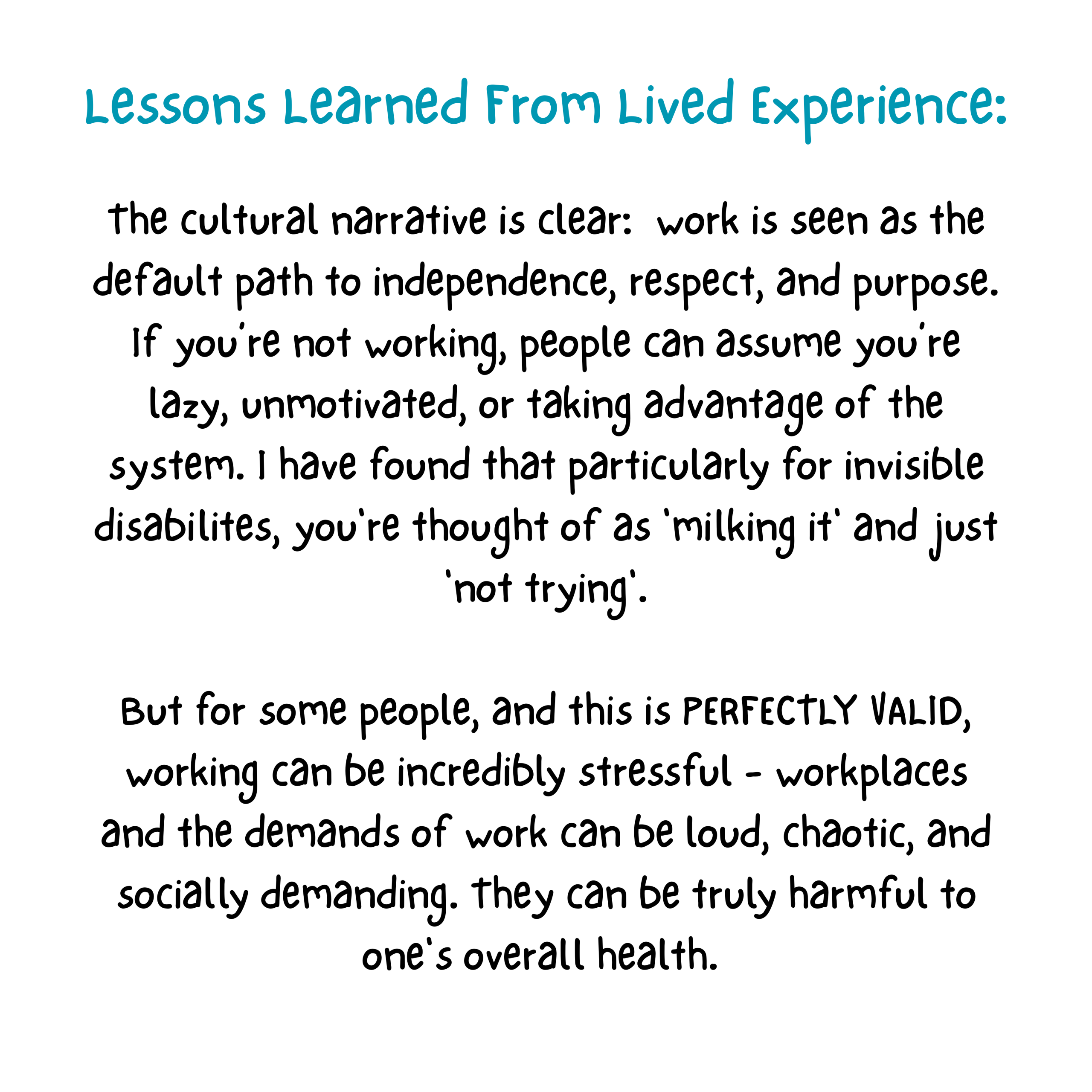
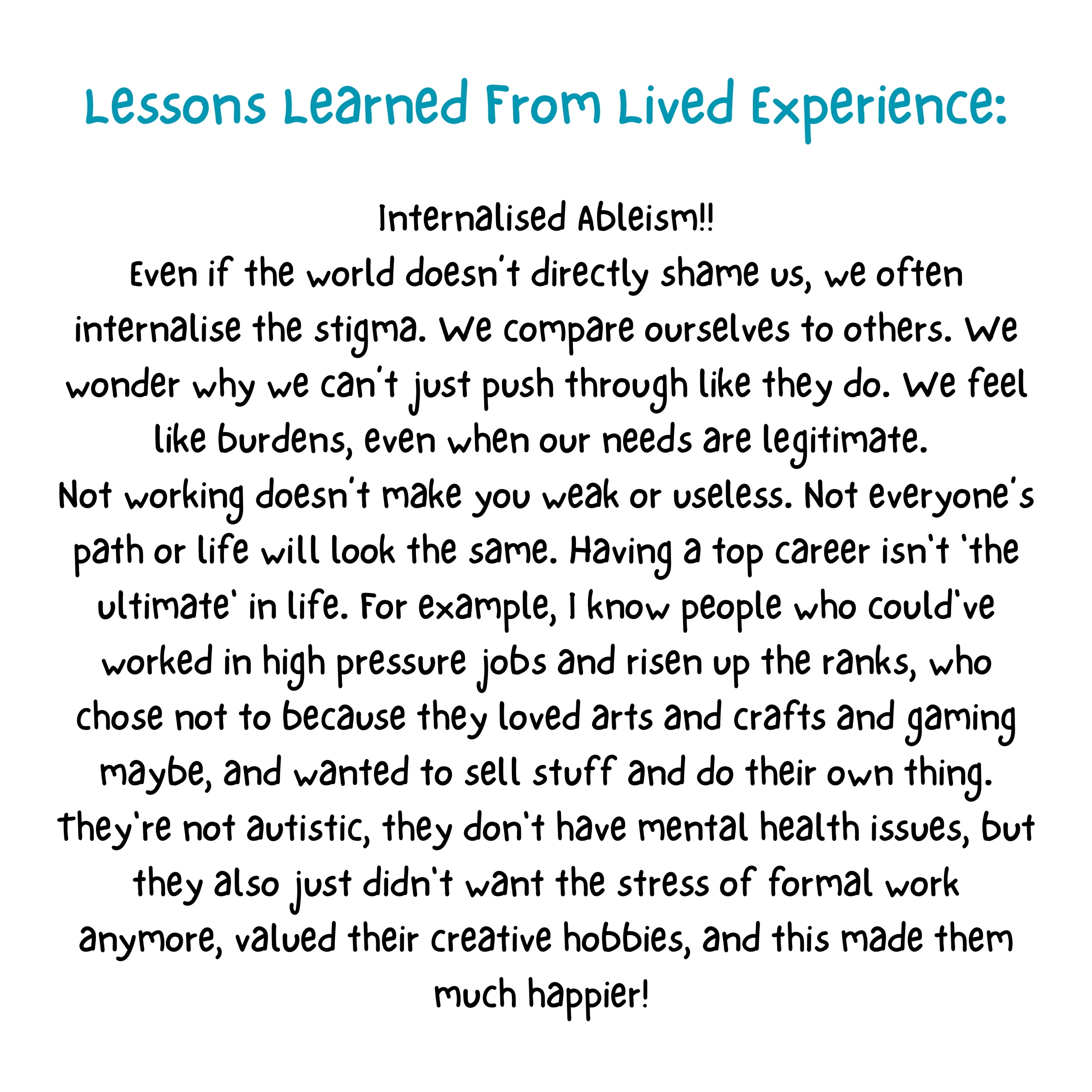
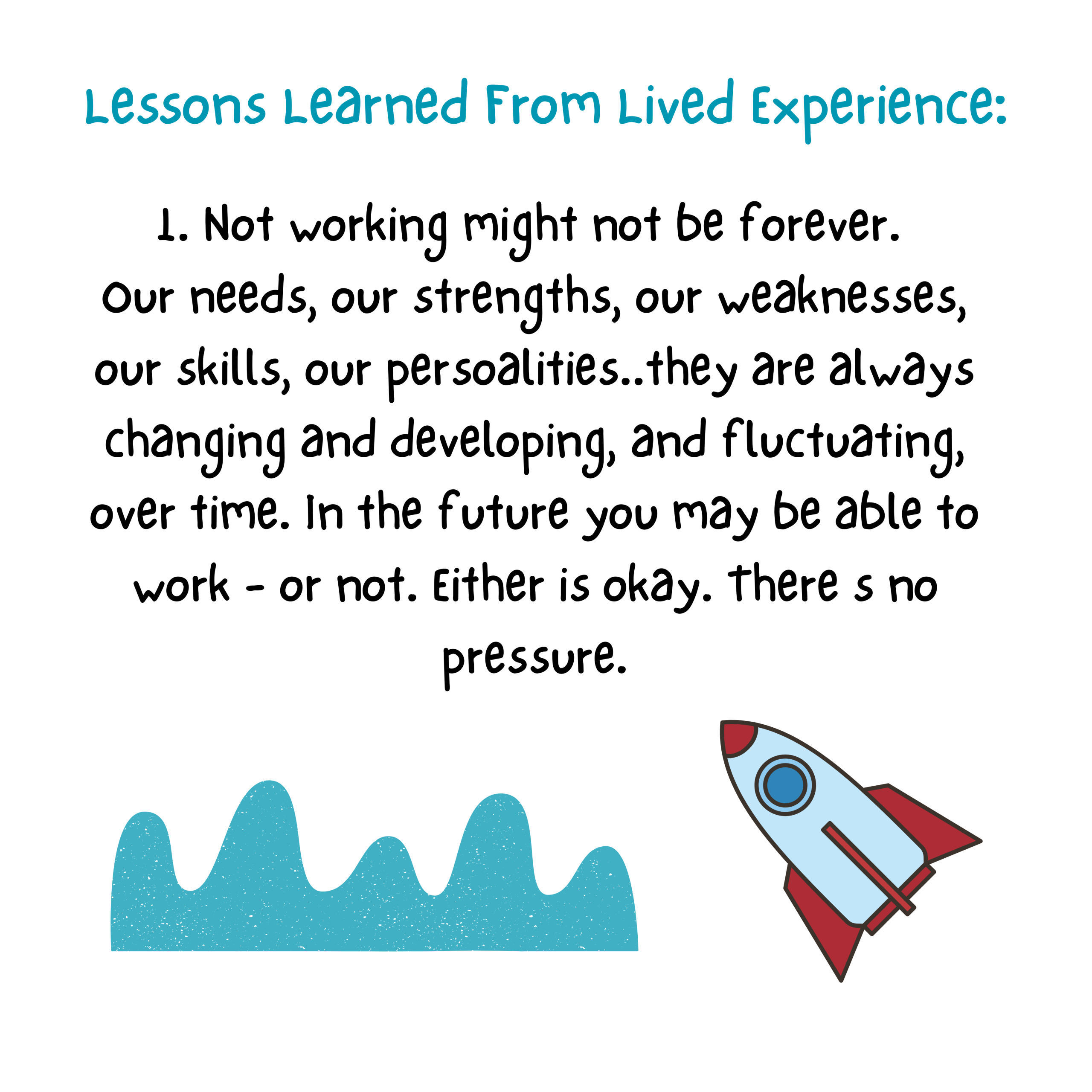
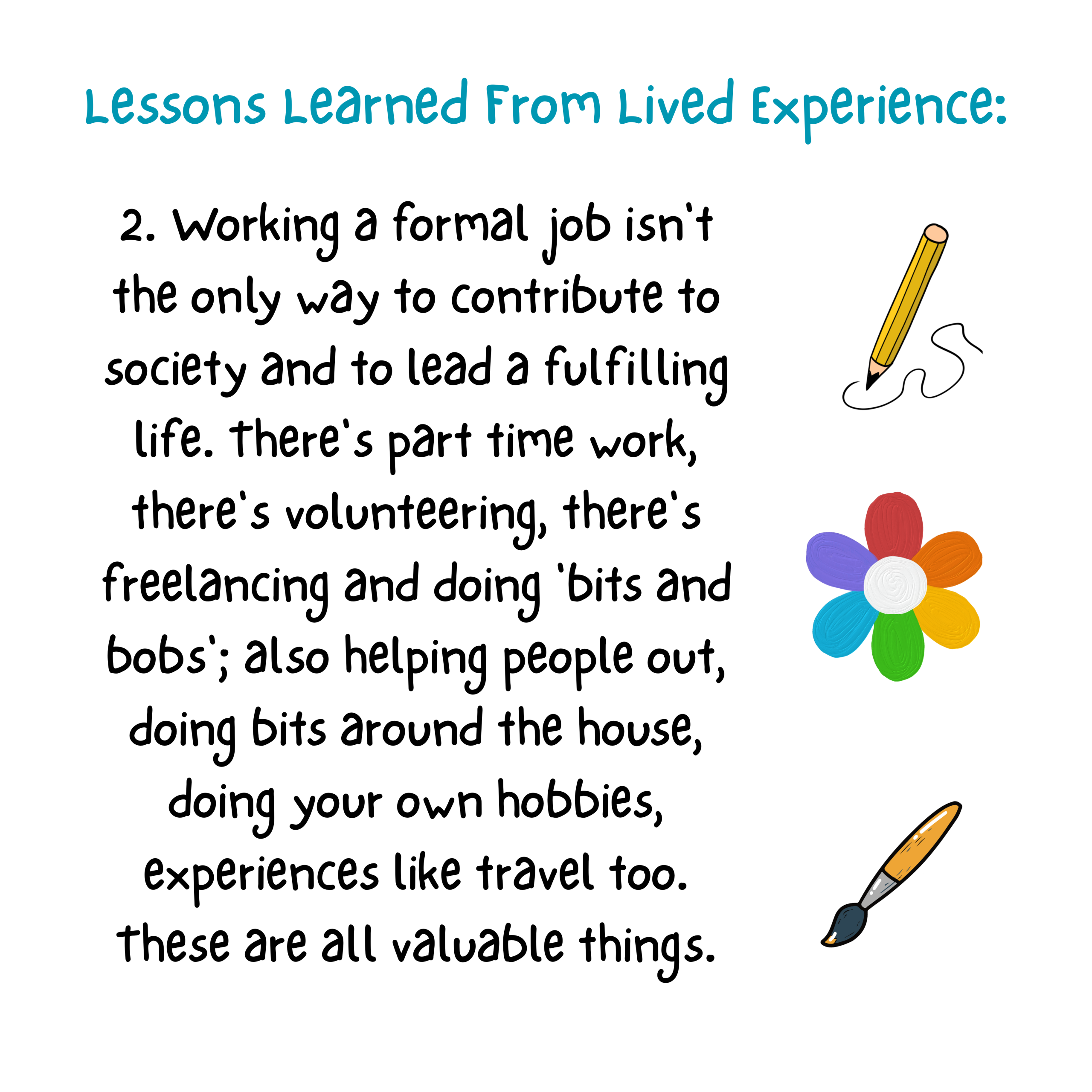

Leave a Reply